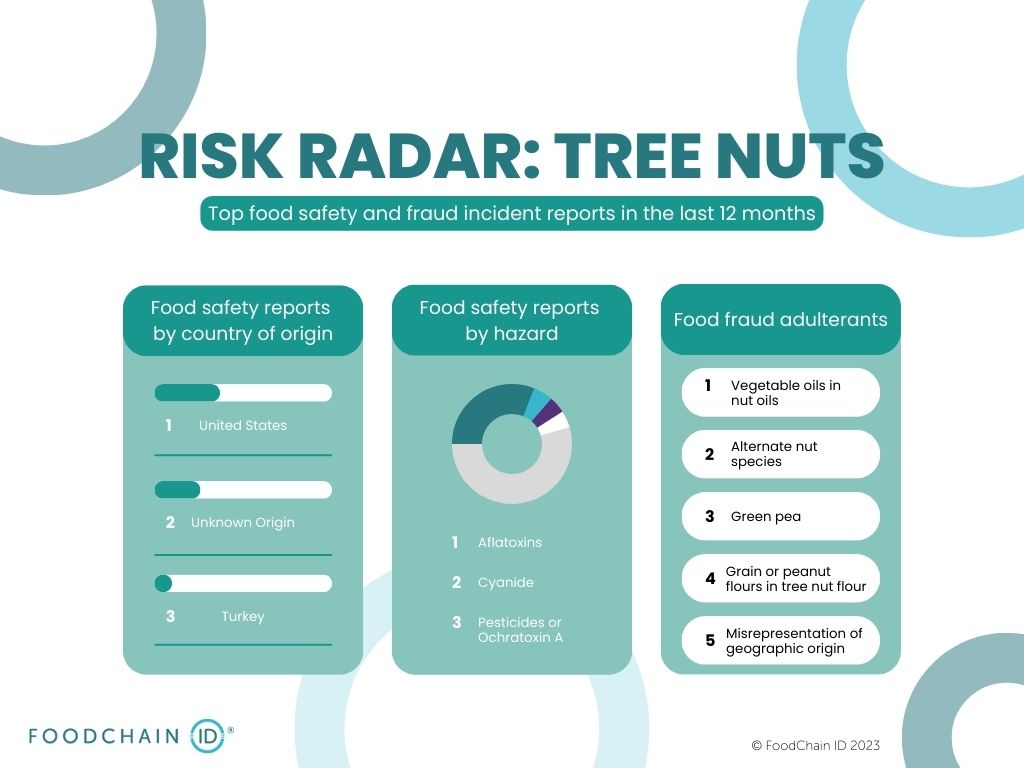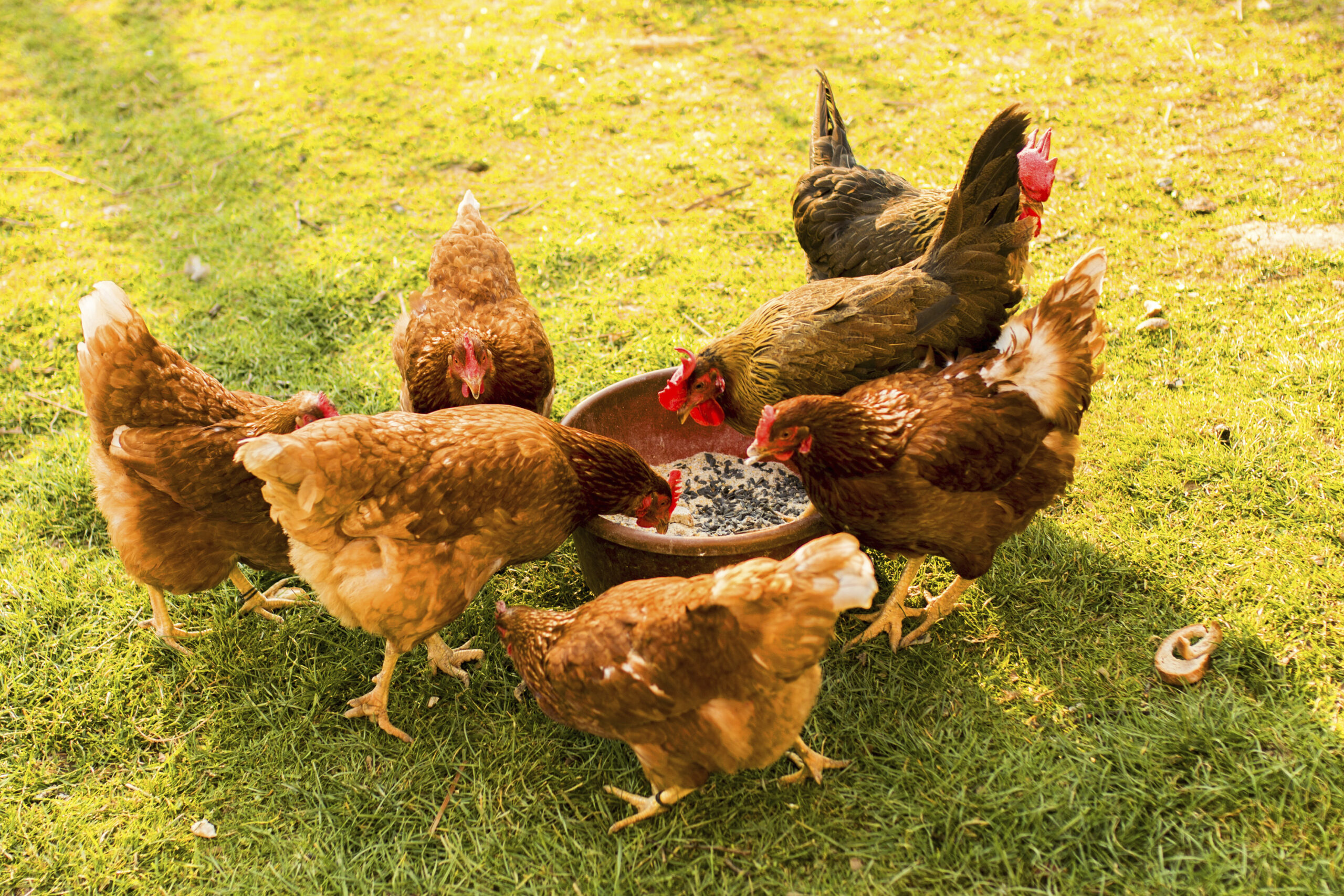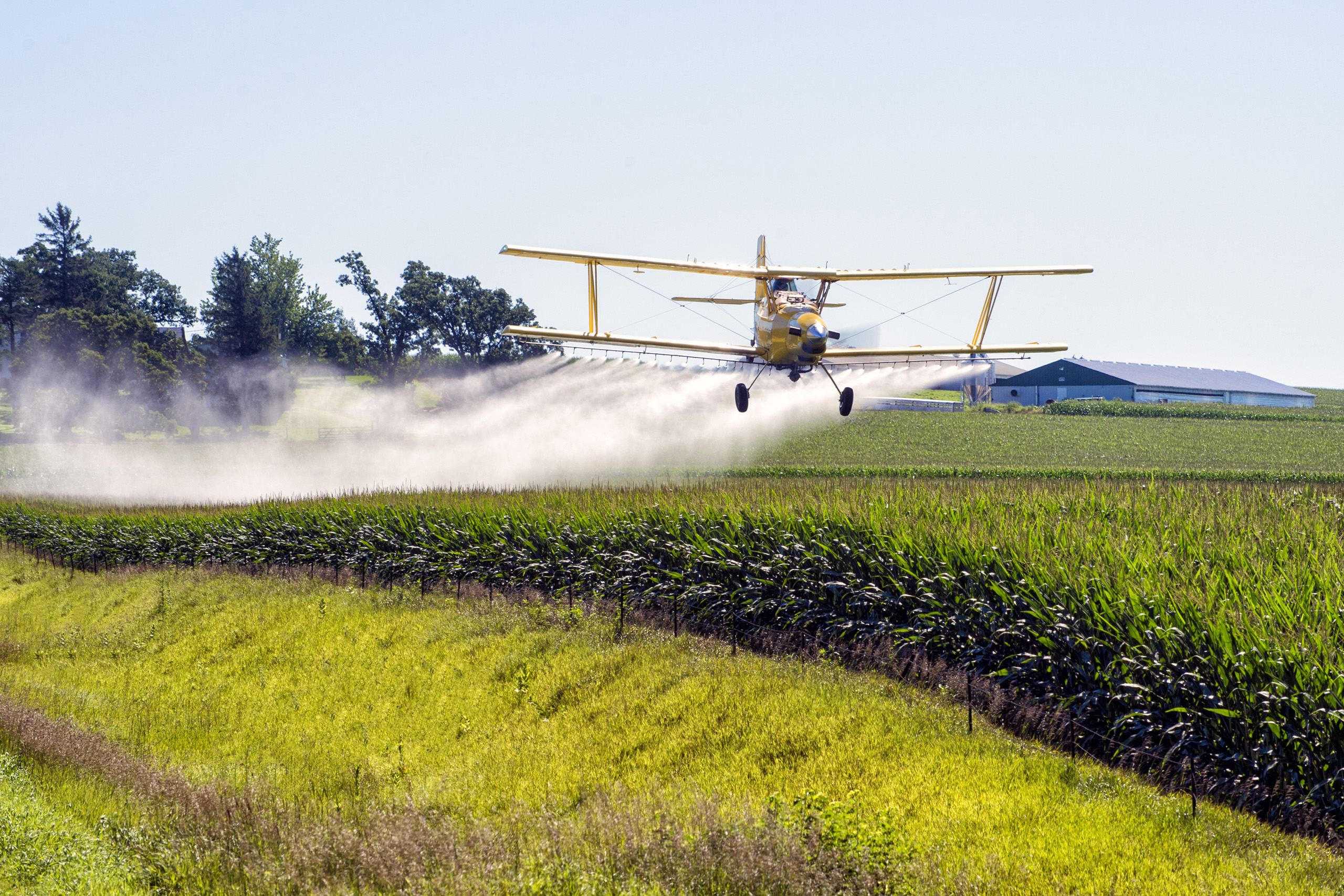Tree nuts are incredibly versatile and find applications in a wide array of food products, enhancing taste, texture and nutritional value, and they are a valuable dairy-free alternative for the growing plant-based sector. Ensuring the safety and authenticity of this commodity is crucial to protect public health and maintain brand reputation, but keeping up with current risks can be challenging. The data from this blog was obtained by running a couple of quick searches in FoodChain ID’s Food Fraud Database and Ingredient Risk Identification by HorizonScan.

Food Safety Risks in Nuts and Nut Products
Sourcing nuts from reputable suppliers and regular testing of both raw materials and finished products are essential to avoid the food safety risks listed below.
- Mycotoxins (including aflatoxins and ochratoxins) are toxic compounds produced by certain molds commonly found in nuts. Regular monitoring and testing for mycotoxin levels in both raw materials and finished products are vital to guarantee safety and ensure compliance with regulatory limits.
- Cyanide can be present in certain nuts, such as cassava nuts and bitter almonds, which contain naturally occurring cyanogenic glycosides. Food companies should verify that nuts they source come from non-toxic varieties. Implementing proper processing techniques and thorough staff training on cyanide awareness and control measures can help ensure compliance and food safety in nut products.
- Pesticide Residues: Collaborating with suppliers who follow integrated pest management (IPM) strategies can help reduce pesticide applications while maintaining crop health. Implementing rigorous supplier verification programs and requesting pesticide residue test reports from suppliers can provide additional assurance.
Food Fraud Risks in Nuts and Nut Products
Fraud in tree nuts can be a particular problem due to the prevalence of tree nut and peanut allergies. Undeclared substitution of nut species is a risk that should be strictly controlled. OPSON VI, a European operation that targets fraudulent and counterfeit food products, found undeclared peanuts, cashews, and almonds mixed into hazelnut products. In the U.K., intentional mislabeling of a almond and peanut powder mix as just almond powder resulted in “peanut free” restaurant meals containing a substantial amount of peanut protein.
Another type of fraud involving tree nuts is mislabeling and diversion of tree nuts that are sent for destruction. In May, authorities in Spain seized 25 metric tons of almonds that that were ordered to be sent for destruction because they contained high levels of aflatoxins. Instead, they were diverted and attempted to be re-sold into the food supply.
Making the food supply chain safer, one search at a time.
It can be challenging and time-consuming to keep up with food safety and food fraud risks in your supply chain. That’s why we offer the solutions your team needs to stay proactive and informed of food safety and fraud risks relevant to your ingredients, products and suppliers.
- Identify biological, chemical and physical hazards with Ingredient Risk Identification by HorizonScan, a daily supply chain monitoring system tracking over 500 commodities, 180+ countries of origin and over 40,000 suppliers with data from over 115 global sources.
- Identify food fraud risks with the Food Fraud Database, a searchable database of over 15,000 global records with information on 5,000+ food ingredients curated by fraud subject matter experts.










